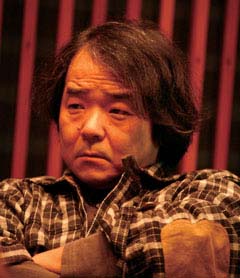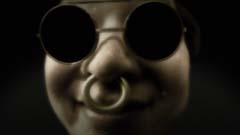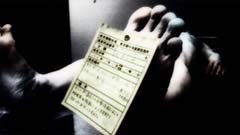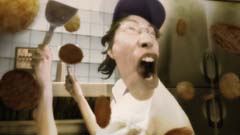Interview with Mamoru Oshii - Part I
What history ought to be told from 1970 on?
 | Mamoru Oshii Born in Tokyo on August 8, 1951, Mamoru Oshii is one of the most remarkable personalities in modern Japanese filmmaking. He introduced introspective philosophical speculation into the world of animation, influencing at the same time movie creators all around the globe with his visionary style. Oshii joined the animation industry in 1977. His main works are Urusei Yatsura 2: Beautiful Dreamer (1984) the epoch-making Ghost in the Shell (1995) and Innocence (2004, nominated for the Palme d'Or at the Festival de Cannes). Oshii has also directed a number of live-action features, including Avalon (2001). Tachigui: The Amazing Lives of the Fast Food Grifters , based on his own novel and released in Japan on April 8, 2006, had its international premiere at the 63rd Venice Film Festival. |
When did the idea for Tachigui: The Amazing Lives of the Fast Food Grifters (Tachigui from now on) first come to mind?
It must've been around 25 years ago. I probably first thought of the idea after I finished the Time Bokan TV series. I remember I had one character saying the line, "I will become a professional fast food grifter!" The template of today's Fast Food Grifters dates back to those days. At the time Walter Hill was quite popular, and in one of his films was a line that went, "He's a real pro." I found this to be surprisingly fresh. In other words, the idea was to carry out the perfect job regardless of the circumstances. In essence, this meaning of "a pro" is related to the notion of "perfectionism." And this applies to the Fast Food Grifters as well. They could simply eat and run, and yet they retain a more spiritual connotation. In order to emphasize that, I used the expression "professional Fast Food Grifter."

Basically, these characters are just carrying out eat-and-run scams, and it seems like a ridiculous story. But they do have a "seeker" dimension to them.
Professionalism can be achieved in any domain, no matter how mundane the endeavor. There's hardly anyone, especially in Japan, that said he became a film director in order to make money. Don Siegel is probably the only director who replied that way in an interview. Once he said that he'd rather be drinking in a bar and rather not be making movies if he could. To that man, movies were nothing but work.
We may wonder if he really meant it.
No matter how mediocre the director, he would normally respond by saying something cool like, "I want to portray people." You think, "You've got to be kidding me!" (laughs) But as a rule, I think we do it for spiritual reasons than simply for materialistic gain. I think this is a common sentiment across cultures. But, never mind film directors or even killers, how about eating fast food soba? I rather think that that endeavor has a more prominent spiritual element to it. What's important is the aspect of staking their lives on something that's so mundane.
So in the film, fictional Fast Food Grifters are used as means to depict a fictional post war history according to Mamoru Oshii. However, we can notice a big change in tone after the segment about Cold Badger Masa. Is that something that you envisioned in the beginning as well?
That's how it turned out anyway. I found nothing worth to be told. It's like, what history ought to be told from 1970 on? Certainly many events took place then, but I can't seem to remember anything. The only thing I can remember from my student days was Yukio Mishima committing suicide.

This is also mentioned in the movie.
Other than that, there was nothing for me to do, so the only option left was to hustle about in a frantic comedy style. I could tell the story of the following 20 years proceeding with a three-time faster pace, just depicting endless scenes of over-eating absurd quantity of food. That's all the second half of the movie is, really.

But in the end, the impression is that the second half of the movie proceeds more vigorously.
That's generally what movies do. When you're doing what you want to do as a film director, you get bogged down and things get heavy. The pace goes down. Conversely, if you don't have anything you want to do, you feel like you've got to give something extra. That's why I talk about terrorism striking the restaurant industry and so on. So, in actuality, the film is already over in the first half.
(1 - to be continued)
This interview was originally collected in Japanese by Shotaro Miya
© 2006 MAMORU OSHII, Production I.G / TACHIGUISHI RETSUDEN Committee

![WORK LIST[DETAILS]](/contents/works/design/images/left_title.gif)



 terms of use
terms of use